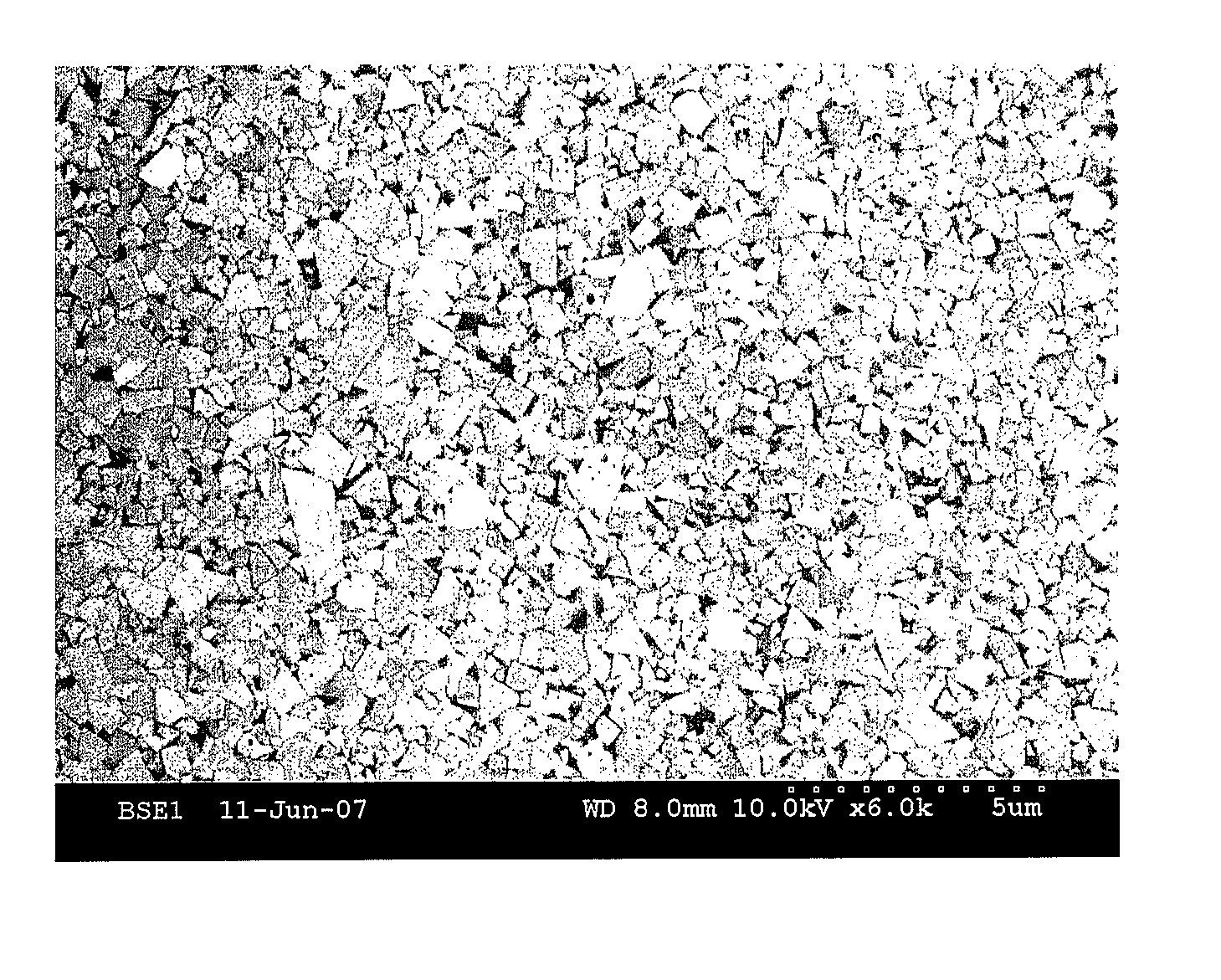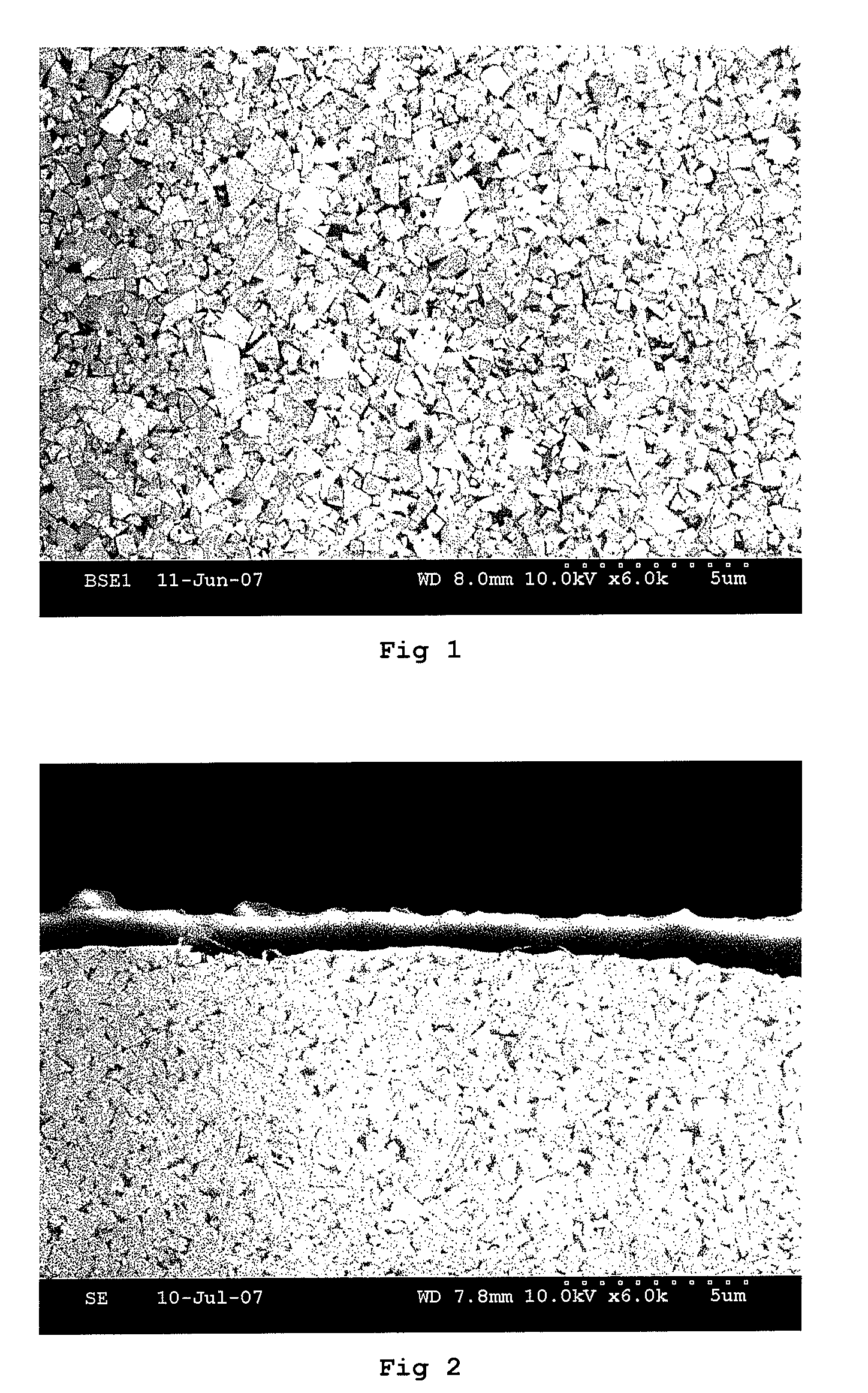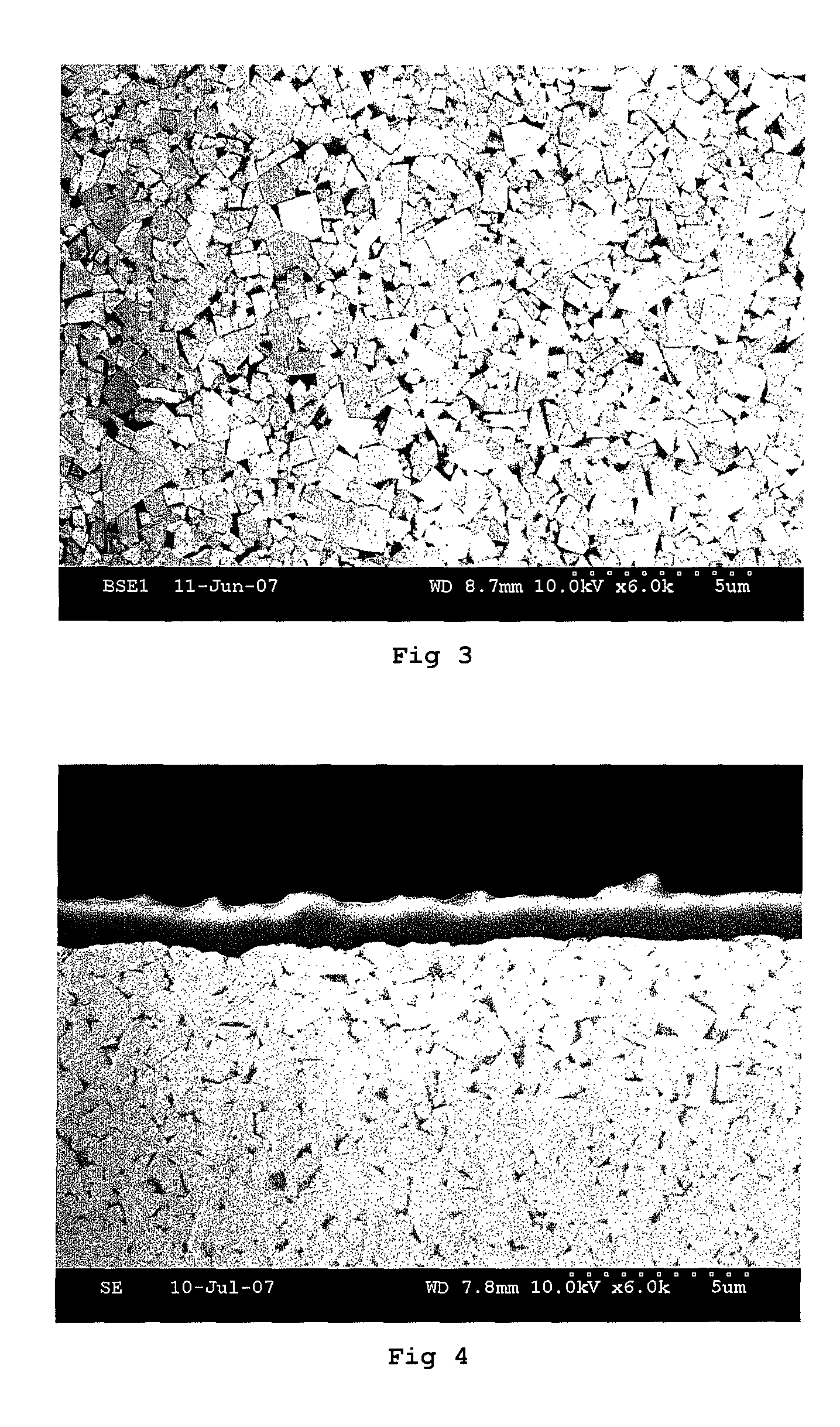Fine grained cemented carbide cutting tool insert
a cutting tool and fine grained technology, applied in the field of coating cutting tool inserts, can solve the problems of increased cutting force, increased cutting edge wear during machining, and more difficult to machine these alloys, and achieve the effect of improving the notch wear resistance of the leading edge and increasing the wear resistance of the flank
- Summary
- Abstract
- Description
- Claims
- Application Information
AI Technical Summary
Benefits of technology
Problems solved by technology
Method used
Image
Examples
example 1
[0031]Tungsten carbide powder, 6 wt-% very fine grained cobalt powder, 0.6 wt-% Cr, 140 ppm Ti and 100 ppm Ta added as H. C. Starck fine grained TiC and TaC and Cr3C2-powder, were wet milled together with conventional pressing agents. After milling and spray drying, the powder was pressed into CNMG120408-QM and CNGP120408 inserts and sintered at 1410 C. After sintering the CW_Cr, Hc and HV 3 were measured. The CW_Cr was determined to 0.76 and 0.014−(CW_Cr)*0.008 to 0.00791 and Me / Co was determined to 0.00296 and the Hc was 31 kA / m and the Vickers hardness was 1983 HV 3. The average sintered WC-grain size was determined from coercivity measurements to 0.83 μm. FIG. 1 shows the sintered structure of the cemented carbide in 6000× magnification by SEM using backscattered electrons.
[0032]After conventional post sintering treatment, a coating was deposited using a target material consisting of Ti33Al67 alloy. The arc evaporation was performed in a N2 gas atmosphere. The resulting total co...
example 2
[0033]Tungsten carbide, 7 wt-% very fine grained cobalt powder, 0.7 wt-% Cr, 140 ppm Ti and 100 ppm Ta added as H.C.Starck fine grained TiC and TaC and Cr3C2-powder, were wet milled together with conventional pressing agents. After milling and spray drying the powder was pressed into CNMG120408-QM and CNGP120408 inserts and sintered at 1410 C. After sintering the CW_Cr, Hc and HV 3 were measured. The CW_Cr was determined to 0.72 and 0.014−(CW_Cr)*0.008 to 0.00737 and Me / Co was determined to 0.00258 and Hc was 29 kA / m and the Vickers hardness was 1916 HV 3. The average sintered WC-grain size was determined from coercivity measurements to 0.77 μm.
[0034]After conventional post sintering treatment, a coating was deposited using a target material of Ti33Al67 alloy. The arc evaporation was performed in a N2 gas atmosphere. The resulting total coating thickness was 2.4 μm, and was a homogeneous Al0.62Ti0.38N layer.
example 3
[0035]A cemented carbide insert as described in Example 1 was, after conventional post sintering treatments, provided with a coating by arc evaporation performed in a N2 gas atmosphere. 3.9 μm PVD (Ti,Al)N multilayer of a sequence of homogeneous Ti0.5Al0.5N layers and lamella layers with alternating layers of TiN and Ti0.5Al0.5N. This sequence was repeated twelve times. The thickness of the homogeneous Ti0.5Al0.5N-layers was 0.1-0.2 μm and the thickness of the lamella layers was 0.1-0.2 μm. The thickness of each individual TiN or Ti0.5A.0.5N-layer in the lamella layer was 0.1-20 nm. The average composition of the multilayer was Ti0.8Al0.2N measured with SEM-EDS.
PUM
| Property | Measurement | Unit |
|---|---|---|
| grain size | aaaaa | aaaaa |
| total thickness | aaaaa | aaaaa |
| total thickness | aaaaa | aaaaa |
Abstract
Description
Claims
Application Information
 Login to View More
Login to View More - R&D
- Intellectual Property
- Life Sciences
- Materials
- Tech Scout
- Unparalleled Data Quality
- Higher Quality Content
- 60% Fewer Hallucinations
Browse by: Latest US Patents, China's latest patents, Technical Efficacy Thesaurus, Application Domain, Technology Topic, Popular Technical Reports.
© 2025 PatSnap. All rights reserved.Legal|Privacy policy|Modern Slavery Act Transparency Statement|Sitemap|About US| Contact US: help@patsnap.com



